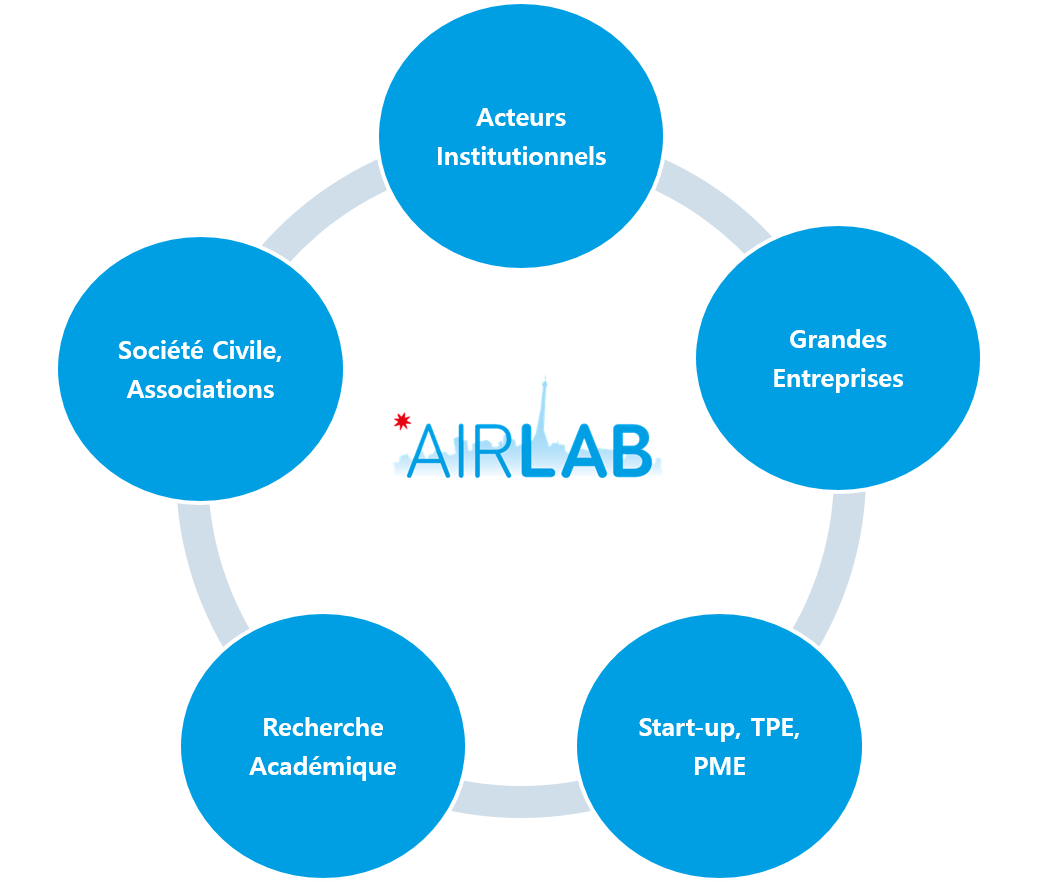Governance
- AIRLAB
It is coordinated by an Airparif employee, under the responsibility of Airparif's director of partnerships and the general manager.
It has a Strategic Committee, made up of the founding members of AIRLAB, in order to define and prioritize its orientations. The committee meets once a year.
Governance is completed by a Steering Committee which meets every three months to:
- ensure the proper functioning of AIRLAB, the implementation of strategic orientations;
- propose new innovation projects;
- monitoring ongoing projects;
- study project proposal labels;
- offer thematic webinars or mornings;
- share information on air quality, research topics and technological innovations nationally and internationally.
The steering committee is made up of the founding members of AIRLAB and members of Airparif committed to innovation and the development of knowledge to improve air quality. Representatives of academic research and the air quality sector, start-ups, VSEs and SMEs complete this committee.
As for Airparif, the governance of AIRLAB is intended to be broad and balanced, around the 5 poles making up the Steering Committee, for a consensual, transparent operation and in the general interest.

Institutional actors : Ile-de-France region, Ville de Paris , Métropole du Grand Paris , Paris-Saclay urban community, ADEME, DIRECT, Ministry of Ecological Transition, IDFM.
The big enterprises : Aésio Mutuelle, Citelum, EDF, Engie, La Poste Group et Geoptis, GRDF, ICADE, SNCF, Veolia, Vinci-Highways, VNF.
Start-ups, VSEs and SMEs represented by the FIMEA.
Academic research is represented by qualified people, in particular Giles Forêt, former coordinator of the DIMQI2(air quality research network.)
The link with civil society is done through projects, in particular those developing citizen participation.
For the Steering Committee, each organization appoints up to 2 representatives.
